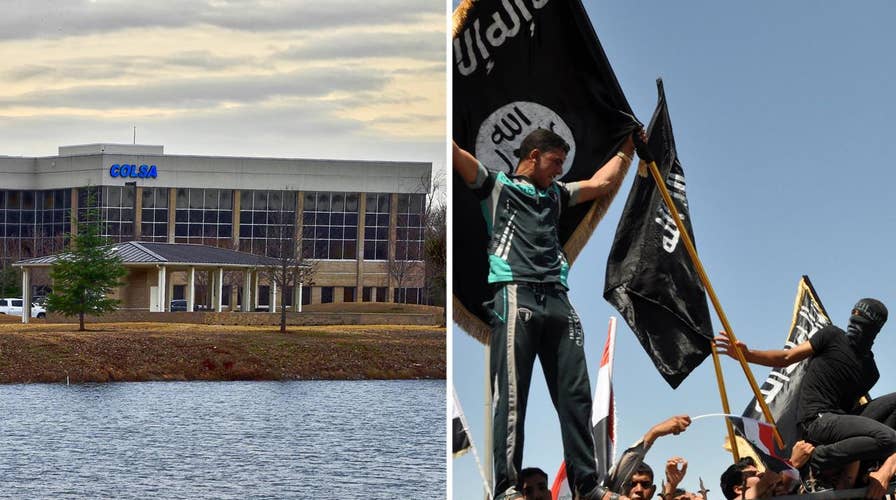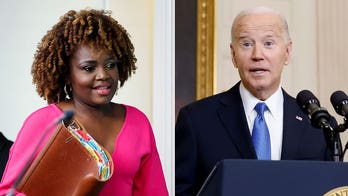Report: US military struggling with online fight vs. ISIS
Insight from Desmond Butler, international investigative reporter with the Associated Press
WASHINGTON – The White House said Tuesday that no American citizen "will ever be targeted" in raids against terror suspects, a blanket statement that appeared to signal a break from the Obama administration's strategy for pursuing and targeting suspects in counterterrorism operations overseas.
Under former President Barack Obama, the Justice Department had issued a legal opinion giving the U.S. the authority to target Americans who are working with terrorists abroad.
White House spokesman Sean Spicer told reporters the Trump administration will lean on the guidance of Central Intelligence Agency director Mike Pompeo and Defense Secretary Jim Mattis, but he added that "no American citizen will ever be targeted."
It was not immediately clear whether Spicer's intended to recalibrate U.S. policy.
The U.S. specifically targeted and killed American Anwar al-Awlaki, a radical cleric, in Yemen in 2011. Other Americans, including suspected terrorists, have been killed in U.S. drone strikes, but they were not specifically targeted.
A U.S. service member and an American child died in a ground raid authorized by President Donald Trump last week. The child was the 8-year-old daughter of al-Awlaki. Al-Awlaki's 16-year-old American son was killed in a U.S. drone strike in 2012.
Sunday's raid left nearly 30 others dead, including more than half a dozen militant suspects. Several more children were also killed.
Whether the U.S. should target its own citizens in drone strikes has been the subject of much debate. During the 2016 presidential campaign, Trump discussed "going after" the families of suspected terrorists, but he did not specify what that meant.
The U.S. has been striking Al Qaeda in Yemen from the air for more than 15 years, mostly using drones. Sunday's surprise pre-dawn raid could signal a new escalation against extremist groups in the poor but strategically located country.
Last week, the Trump administration imposed an immigration and travel ban on people from seven countries, including Yemen, citing terrorism concerns.
Obama said in 2013 that he did "not believe it would be constitutional for the government to target and kill any U.S. citizen — with a drone, or with a shotgun — without due process, nor should any President deploy armed drones over U.S. soil."
He added, however, that if that citizen wages war against America or is actively plotting to kill Americans, "his citizenship should no more serve as a shield than a sniper shooting down on an innocent crowd."
Later that same year, the Obama administration triggered a fiery debate on Capitol Hill over the limits of its drone program following the death of al-Awlaki's teenage son, an American citizen. Sixteen-year-old Abdulrahman al-Awlaki, an American citizen at the time of the 2012 strike that killed him, hadn't seen his father in two years when he was killed. He had no known links to Al Qaeda and is said to have lived the life of an ordinary teenage boy.





